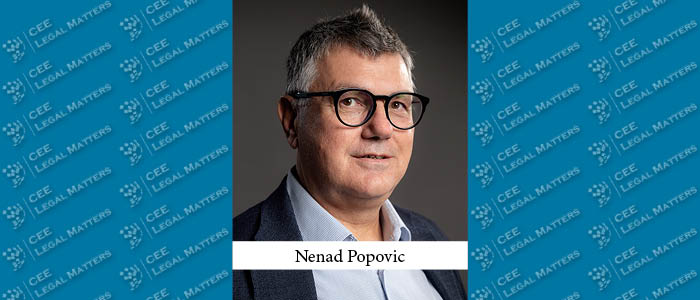Between upcoming elections and the situation in Kosovo, Serbia has plenty of reasons to expect a slowdown in the upcoming period, even if current activity levels remain, at times, surprisingly high according to JPM Partners Senior Partner Nenad Popovic.
“For the last two months, everybody was talking about the incoming elections - which are slotted to take place on December 17,” Popovic begins. “This, along with the events that recently took place in Kosovo, has shaped the discourse around the economic repercussions and potential pitfalls that we might collectively experience,” he says.
“As far as the elections are concerned, the legal market always experiences a slowdown - especially M&A or foreign investments,” Popovic continues. “This slowdown, if not a full stop, usually starts with the announcement of the elections and lasts all the way up to the formation of a new government, with investors being cautious about their positions,” he explains. “While there has not yet been any tangible slowdown, the legal market is bracing for a phase of reduced activity. Moreover, with the upcoming orthodox holidays, January has traditionally been a period of a slower pace, which we expect to decelerate matters.”
Additionally, Popovic reports that since the elections were announced, “legislative actions have halted, with the current government putting everything on hold. It's challenging to predict the election results and the duration of potential negotiations for a new government, but until that occurs - we do not expect there to be much to report from the legislative front.”
Continuing, Popovic says that “the Kosovo situation is primarily an EU issue for us. As the EU is our largest foreign investor, any significant deterioration there could slow down our economy,” he says. Although there have been some red flags, Popovic reports that “no concrete investment slowdown from the EU has occurred yet. However, these political issues are beyond our control, so we must prepare for any eventuality.”
Moreover, commenting on the current status of the economy, Popovic says that, “despite a 15.5% inflation rate and an overall economic slowdown, there has been vibrancy.” Specifically, he mentions the booming real estate sector where “the prices are still very high for new projects, and are, indeed, disproportionate to the purchasing power in Serbia right now. Still, surprisingly, all projects that came to the fore were sold - which gave rise to questions of the origin of the funds for all of these acquisitions,” he explains.
Finally, Popovic mentions that the renewable energy sector hasn't seen a slowdown either. “There's significant investor interest here. However, with the lithium extraction issue with Rio Tinto — there have been constitutional and judicial review concerns at play that might affect the entire sector soon,” he reports. “Also, I must mention that the car part production sector has been increasingly active, with many investors entering the market,” he concludes.















